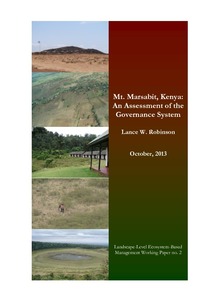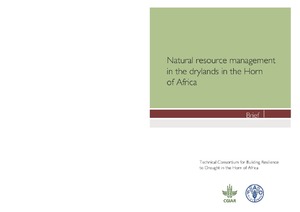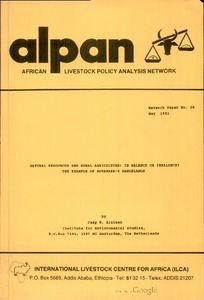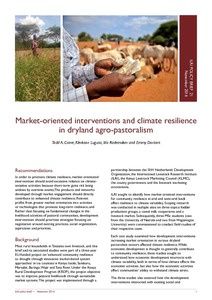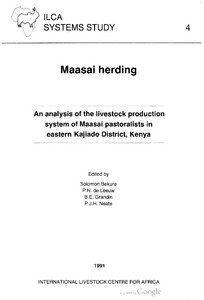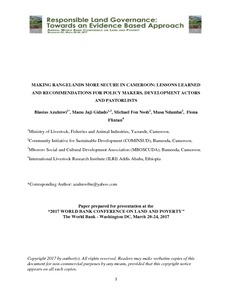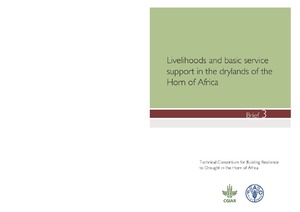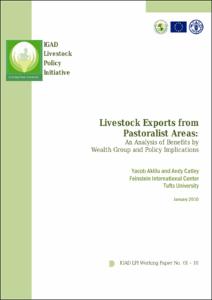Pastoralistas
AGROVOC URI:
Natural resources and rural agriculture: In balance or imbalance? The example of Botswana's rangelands
Assesses the effect (balance or imbalance) of the present relationships between the natural resource base and human activities; examines the role of some potentially destabilising forces, i.e, international markets, government programmes and socio-economic stratification; and reviews government's role in terms of its contributions to prudent natural resource management and options for the promotion of sustainable rural development.
Microbiological safety of milk and processing and consumption behaviour in pastoral areas in southern Ethiopia
The objective of the present study was to assess the behaviour of people in milk
production and consumption using qualitative methods. Further, the study involved
the microbiological quality and safety assessment of milk and traditional dairy
products along milk value chains. The investigation involved largely women given
that women are customarily involved in milk handling and processing. Individual
semi-structured interviews, focus group discussions, and observations were used to
Mixed species stocking and the vital statistics and demography of domestic animals in the arid and semi-arid zones of northern tropical Africa
Shows mixed species stocking in Northern tropical Africa w., particularly emphasis on the African traditional animal production systems; w. data on reproduction, growth and viability for five species in the region; herd & flock structures for dif. species; and the use of livestock to increase the human food supply.
Mobility and livestock mortality in communally used pastoral areas: The impact of the 2005-2006 drought on livestock mortality in Maasailand
There is consensus that pastoral mobility is beneficial for both pastoralists and the environment. However, rapid change arising from multiple factors, including landscape fragmentation, sedentarization, and demographic drivers might affect the effectiveness of this pastoral coping strategy in times of drought. We investigate livestock mortality rates following the 2005 drought in four areas in Maasailand: the Maasai Mara, the Kitengela plains, the Amboseli, and the Simanjiro plains.
Mohamed Said on measuring resilience in drylands of East Africa
Mohamed Said, Scientist, ILRI, at the side event, “Measuring and Evaluating Resilience in Drylands of East Africa.” IFPRI 2020 conference on Building Resilience for Food and Nutrition Security, May 15-17, 2014, Addis Ababa, Ethiopia. More information "http://www.2020resilience.ifpri.info"
Market-oriented interventions and climate resilience in dryland agro-pastoralism
Maasai herding: An analysis of the livestock production system of Maasai pastoralists in eastern Kajiado District, Kenya
The first chapter gives a brief description of a pastoral production system, as envisaged by the study team and outlines the multi-disciplinary approach of the study, its sampling design and the data collected. Chapters 2 & 3 describe Kenya's biophysical and socio-economic environments, within which the Maasai livestock production system operates. The biophysical environment of the study site is described in detail in Chapter 4. Chapter 5 describes the social organization of the Maasai and how it affects their use of livestock and grazing resources.
Making rangelands more secure in Cameroon: Lessons learned and recommendations for policy makers, development actors and pastoralists
In Cameroon, rangelands occupy about 20 % of surface area; provide critical habitat to many animal and
plant species; offer many vital goods and services to society and are home to pastoralists, agropastoralists,
crop farmers, fishermen and hunter-gatherers, who for centuries co-existed peacefully. In
recent years this harmony is being threatened by changing land use patterns, poor land use planning and
poor recognition of ownership rights. Despite efforts by state and non-state actors to improve pastoral

